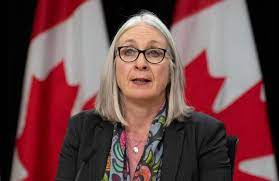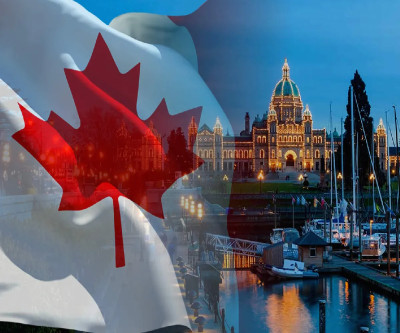Latest News
- Four years after Indigenous woman dies in Niagara Hospital, family still waiting for coroner's investigation
- Lawyer: British Columbia RCMP officer should be fired or resign immediately
- B.C. government looks to offer loan guarantees to property owners in Cowichan Aboriginal title area
- Uber driver's account in Toronto suddenly deactivated; only source of income cut off after 'duplicate account' claim
- TDSB education chief fired by provincial supervisor; sweeping changes at Canada's largest education board
Latest Ads
-
Jasmine Jewel
Call
-
Omidan group
Call
-
Amir Madanpour
Call
-
Dimo studio
Call
-
Yorkacademy
Call
-
Maryambagheri
Call
-
Shishlix Restaurant
Call

Ottawa says lawyers don't deserve $80 million for First Nation child welfare settlement
Ottawa intends to pay approximately half of the amount requested by class action lawyers in a landmark compensation case for Indigenous children's welfare, which is one of the largest compensation settlements in Canadian history. The federal government claimed in court last week that it should pay between 40 to 50 million dollars to the class action lawyers, instead of the 80 million dollars they requested.
Federal Justice Mandy Aylen, who made her decision on Friday, emphasized that the court needs to consider the size of the compensation agreement and the fact that this case has been in progress for over a decade in the Canadian Human Rights Tribunal. Aylen stated, "This claim has been generated in very unique circumstances."
"One of the things I can say is that they've described this kind of settlement as something like a quadrilateral kind of settlement... second, and importantly, this settlement is based on the Human Rights Tribunal procedure." Paul Vickery, Deputy Attorney General of the Federal Justice Department, described the requested 80 million dollars as unacceptable. He argued that even the Canadian public is not interested in paying this amount. Vickery said, "Lawyer fees are scrutinized very closely, both by the demanding community and the Canadian public."
The class action lawyers stated that their request for 80 million dollars is justified because the agreement they helped negotiate is unprecedented, and they agreed to be paid only if they succeeded.
The federal government of Ottawa has agreed to pay the legal fees of the five law firms that initiated the class action proceedings, which led to a compensation agreement of over 23 billion dollars, approved by the Federal Court last Wednesday. The financial compensation will be distributed among more than 300,000 First Nations children and families who experienced discrimination due to the government's underfunding of on-reserve child welfare systems and other family services.
The Canadian Human Rights Tribunal stated that the government's actions created an incentive for foster care systems to remove children from their homes. This practice, known as the "millennium scoop," resulted in more Indigenous children ending up in foster care than were sent to residential schools at the height of the residential school system.
The legal bill will not be paid out from the 23 billion dollars in federal cash set aside for compensation. It also won't come from the other 20 billion dollars earmarked by Ottawa for long-term reform of First Nations child and family services. Class action lawyers will be paid through additional public funds.
The fees will go to five firms: Sotos LLP, Kugler Kandestin LLP, Miller Titerle + Co., Nahwegahbow, Corbiere, and Fasken Martineau Dumoulin.
The judge questions the risks taken by the lawyers in this case. The government objects to some lawyers billing at the upper end of their hourly rate scales. Ottawa argues that if the 80 million-dollar legal bill is approved, some lawyers would be compensated at a rate of $4,580 per hour. Ottawa says a legal bill of 40 to 50 million dollars is more consistent with other recent large settlements, according to court filings. Vickery said the government acknowledges that a premium should be paid to class action lawyers as an incentive for taking up such cases. But he argued that these lawyers took only a moderate risk by pursuing this case because the federal government had already publicly stated that it would compensate First Nations people affected by its discrimination.
Suggested Content
Latest Blog
Login first to rate.
Express your opinion
Login first to submit a comment.
No comments yet.


































